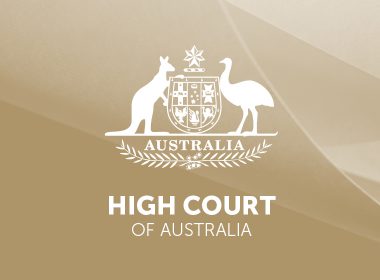Key decisions
- Hoang v The Queen [2022] HCA 14
- Citta Hobart & Another v Cawthorn [2022] HCA 16
Criminal practice
Jury trial
In Hoang v The Queen [2022] HCA 14 (13 April 2022) the High Court was required to determine whether a juror engaged in misconduct and should have been discharged prior to the taking of verdicts. Mr Hoang was tried in the District Court of New South Wales on an indictment charging him with 12 counts of sexual offences against children. Mr Hoang pleaded not guilty to all charges.
It was alleged that Mr Hoang committed the offences while working as a mathematics tutor. As part of the Crown’s case, the Crown led evidence at the trial that Mr Hoang did not have a Working with Children Check. Mr Hoang gave character evidence to counter this evidence and Mr Hoang’s counsel made submissions about this evidence which the trial judge referred to in the summing up. During the course of jury deliberations, the jury provided a note to the trial judge stating that they had reached agreement on eight of the charges. The jury returned the following morning and, about noon that day, the jury foreperson sent the trial judge a note. In the note the foreperson stated that a juror had disclosed yesterday evening that she had conducted an internet search on the requirements for a Working with Children Check. The note went on to state ‘the juror had previously been a teacher and was curious as to why they themselves did not have a check’ (at [6]). After receiving the note, the trial judge proceeded to take the eight verdicts referred to in the jury note from the previous day and a further two verdicts which, that afternoon, the jury indicated they had reached a unanimous verdict on (at [7]) . After taking these verdicts, the trial judge then discharged the juror for misconduct under s 53A(1)(c) of the Jury Act 1977 (NSW) (‘Jury Act’).


